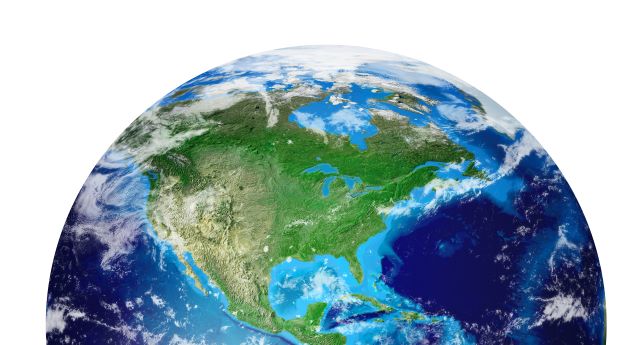
In early 2024, a new report titled “Climate Change in the American Mind: Beliefs & Attitudes” was published. The report is based on a survey conducted by the Yale Program on Climate Change Communication and the George Mason University Center for Climate Change Communication. Read the full report here.
The survey took place from October 20-26, 2023, and involved interviews with 1,033 adults over 18 years of age. The research was funded by several foundations, including the U.S. Energy Foundation.
The principal investigators for the survey are Anthony Leiserowitz and Seth Rosenthal of the Yale Program on Climate Change Communication, as well as Edward Maibach and John Kotcher, of the George Mason University Center for Climate Change Communication.
The Climate Change in the American Mind survey is conducted twice a year. These surveys look into public understanding and perceptions of climate change, policy support, and behavior.
The recent report presents Americans’ beliefs and attitudes about global warming, based on a survey conducted from October 20 to 26, 2023.
The survey found that 72% of Americans believe global warming is happening, while only 15% think it is not happening.
Additionally, 49% of Americans are “very” or “extremely” sure that global warming is happening, compared to only 8% who are “very” or “extremely” sure that it is not happening. Furthermore, 58% of Americans understand that global warming is mostly caused by human activities.
By contrast, 29% think it is caused mainly by natural environmental changes. 53% of Americans understand that most scientists think global warming is happening.
46% of Americans think people in the United States are being harmed by global warming “right now,” and 43% say they have personally experienced the effects of global warming.
Majorities of Americans think global warming will harm plant and animal species (71%), future generations of people (70%), the world’s poor (67%), people in developing countries (66%), people in the United States (59%), and people in their community (50%).
Many also think their family (49%) and themselves (45%) will be harmed. 10% of Americans have considered moving to avoid the impacts of global warming. 61% of Americans think global warming affects weather in the United States, including 33% who think weather is being affected “a lot.”
Majorities of Americans think global warming is affecting many environmental problems in the United States, including extreme heat (75%), droughts (71%), wildfires (70%), air pollution (66%), water shortages (66%), flooding (66%), rising sea levels (66%), hurricanes (64%), reduced snowpack (61%), tornados (61%), agricultural pests and diseases (59%), water pollution (58%), and electricity power outages (57%).
52% of Americans think extreme weather poses either a “high” (16%) or “moderate” (36%) risk to their community over the next ten years. Majorities of Americans are worried their local area might be harmed by electricity power outages (74%), air pollution (73%), extreme heat (70%), water pollution (67%), droughts (63%), agricultural pests and diseases (63%), flooding (58%), water shortages (56%), tornados (56%), and wildfires (52%).
Many Americans are also worried their local area might be harmed by hurricanes (39%), rising sea levels (38%), and reduced snowpack (37%). 65% of Americans say they are at least “somewhat worried” about global warming. This includes 29% who say they are “apprehensive.”
About one in ten Americans report experiencing symptoms of anxiety or depression because of global warming for several or more days out of the last two weeks. 65% of Americans say they “rarely” or “never” discuss global warming with family and friends, while 35% say they do so “occasionally” or “often.”
40% of Americans think it is at least “moderately” important to their family and friends that they take action to reduce global warming (an injunctive norm), and 35% say their family and friends make at least “a moderate amount of effort” to reduce global warming (a descriptive norm).
51% of Americans say they hear about global warming in the media about once a month or more frequently. Fewer (20%) say they listen to people they know talk about global warming once a month or more regularly.
Given the opportunity to speak to an expert on global warming, the questions Americans would most commonly ask are: “What can the nations of the world do to reduce global warming?” (74%); “What can the United States do to reduce global warming?” (72%); “How do you know that global warming is caused mostly by human activities, not natural changes in the environment?” (70%); and “Is there still time to reduce global warming, or is it too late?” (69%).
67% of Americans say the issue of global warming is either “extremely,” “very,” or “somewhat” important to them personally. In comparison, 33% say it is either “not too” or “not at all” personally important. 63% of Americans feel a sense of responsibility to help reduce global warming. 13% of Americans agree with the statement, “It’s already too late to do anything about global warming,” while many more (60%) disagree.
47% of Americans agree with the statement “the actions of a single individual won’t make any difference in global warming,” while 53% disagree.
The U.S. Army Corps of Engineers has been tasked with…
Brown and Caldwell, a leading environmental engineering and construction firm,…
Humboldt State University, one of four campuses within the California…